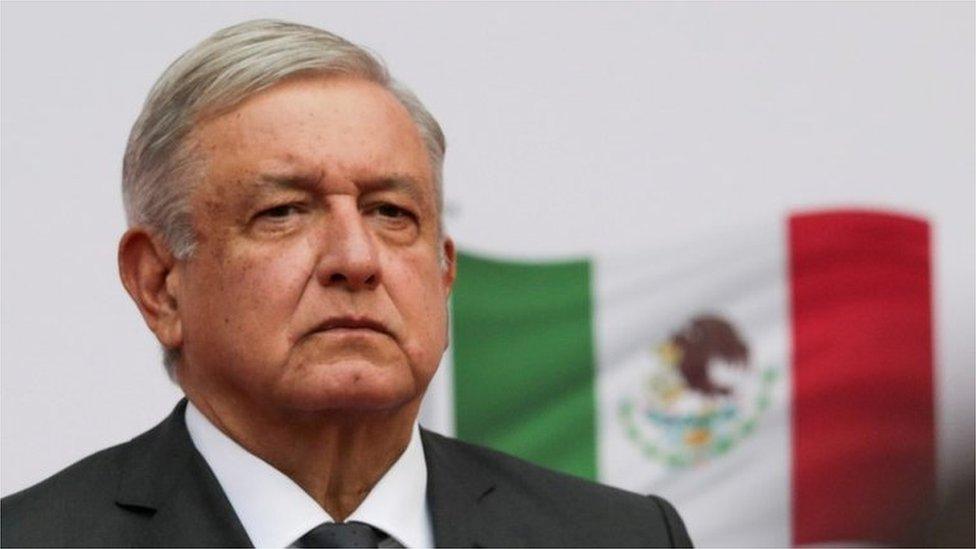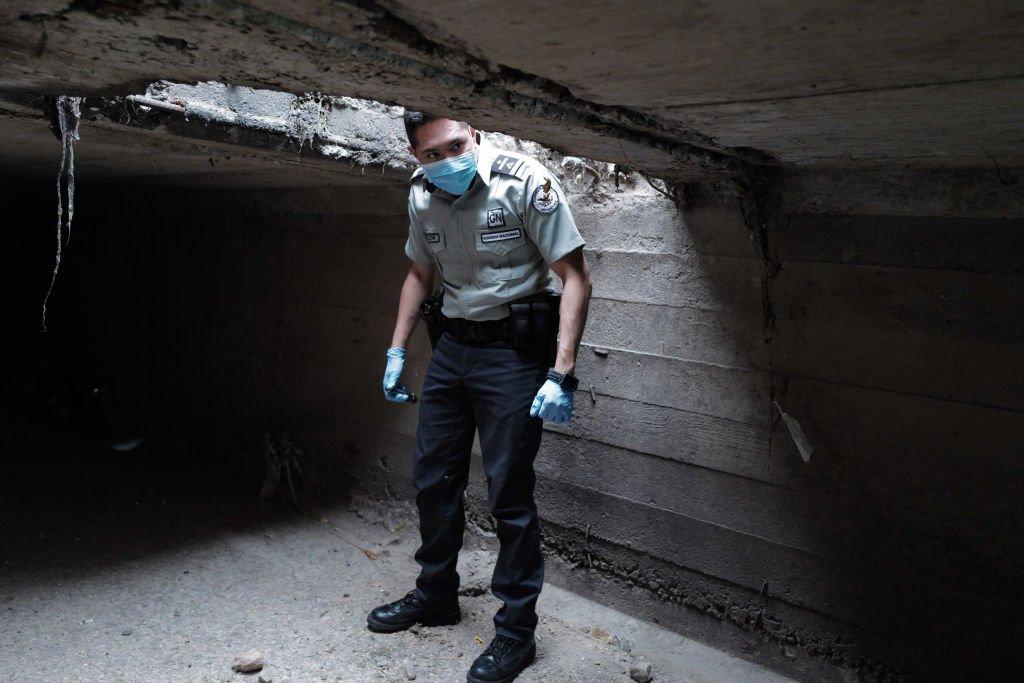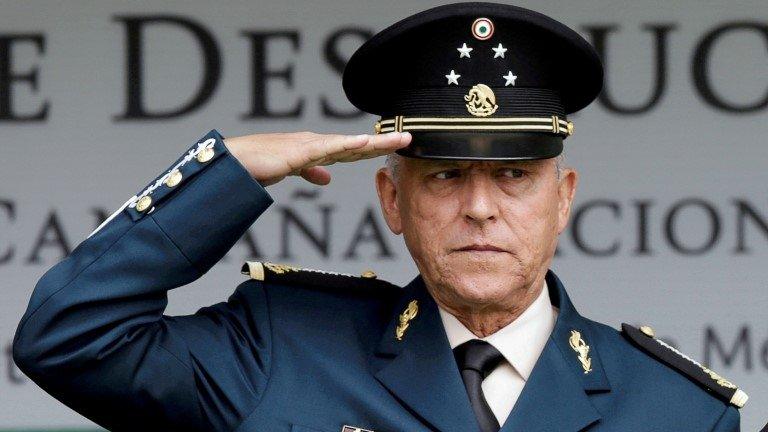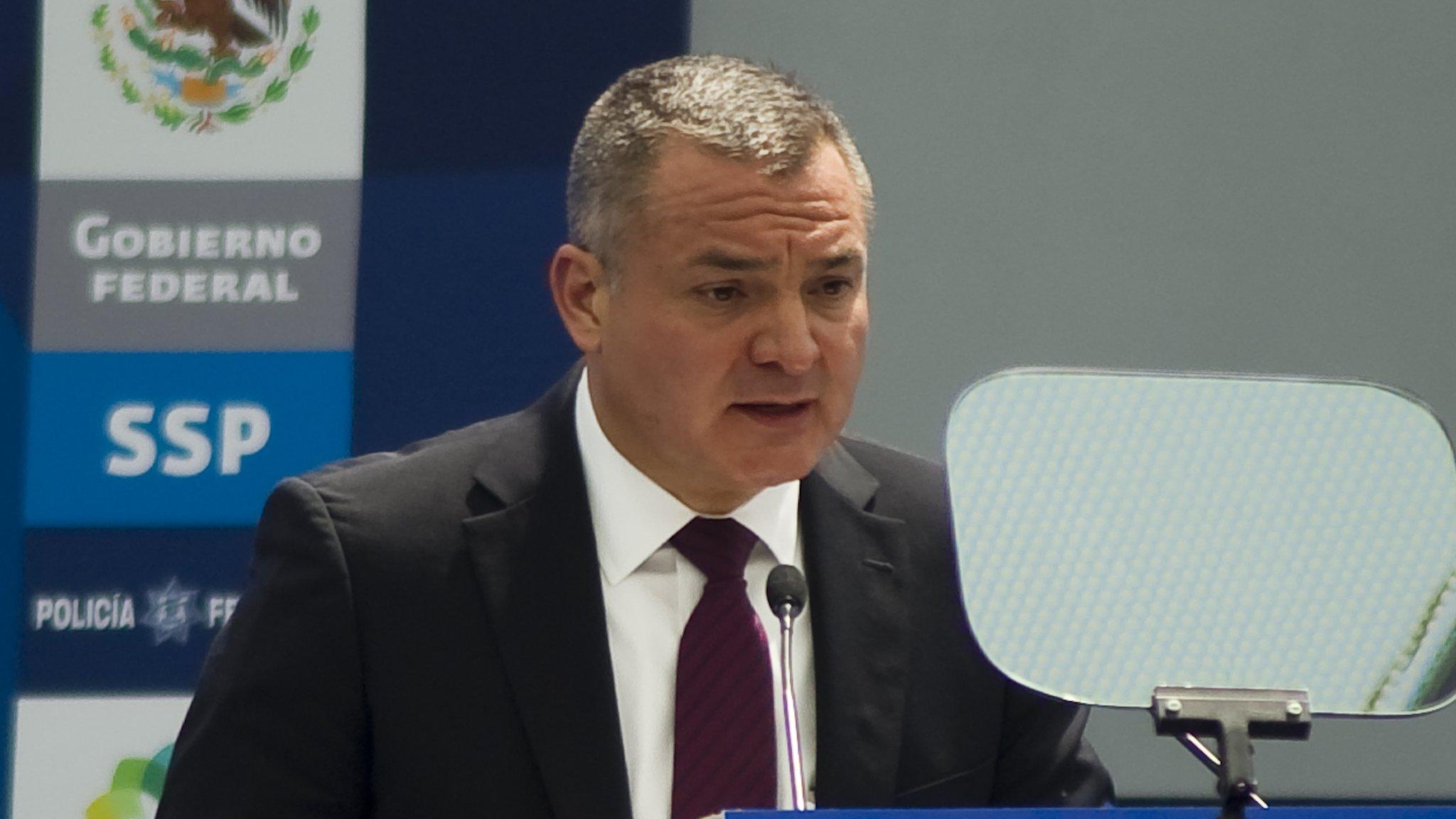Mexico lawmakers restrict foreign law enforcement agents
- Published

President Andrés Manuel López Obrador suggested the changes to the security law
Mexico's Chamber of Deputies has passed changes to a security law which tighten the rules governing foreign law enforcement agents.
Under the new regulations, the foreign agents have to share the information they gather with Mexican officials.
The changes have the backing of President Andrés Manuel López Obrador, who proposed them.
US Attorney General William Barr warned that its passing would make US-Mexico cooperation "more difficult".
What will change?
The changes will affect those described as "foreign agents", such as police officers, counternarcotic agents and intelligence experts sent from abroad to Mexico to help combat drug trafficking and transnational organised crime.
The key points of the changes are:
Foreign agents will no longer have immunity
They will be required to share information with the Mexican government
Mexican officials will have to get permission before meeting foreign agents and submit a written report of what they discussed
Why does it matter?
The changes mention foreign agents in general and do not single out a specific country, but are widely understood to be targeted at agents from the US Drug Enforcement Administration (DEA).

Much of the heroin seized in the US comes from Mexico - some is smuggled through tunnels across the border
With Mexico "the source of nearly all heroin seized in the United States and a transit route for much of the cocaine", according to the US Deputy Assistant Secretary of Defense for Counternarcotics Matthew J Flynn, it comes as little surprise that the DEA should have invested considerable time and effort in gathering intelligence inside Mexico.
The DEA has offices in Mexico and its agents have been active there for decades.
However, their role has been controversial, with Mexican security forces alleging that information is often not shared with them.
Critics of the Mexican security forces have used allegations of corruption at the highest levels to argue that sharing sensitive information puts it at risk of being leaked to the very cartels the police are supposed to fight.
Security experts fear the changes could compromise the information gathered by the DEA in Mexico.
How did the changes come about?
President López Obrador suggested the reform of the security law following the detention of former Mexican Defence Minister Salvador Cienfuegos in the United States.
Gen Cienfuegos, who served as defence minister from 2012 to 2018, was arrested at Los Angeles airport in October.

Gen Cienfuegos was flown back to Mexico where he is free pending an investigation
US prosecutors said he had links to the "extremely violent" H-2 drug cartel in Mexico and he was charged with drug trafficking in a US court.
Gen Cienfuegos's arrest reportedly infuriated President López Obrador, who appeared particularly riled by the fact that Mexican officials had not been informed about the investigation into the general.
Mexican Foreign Minister Marcelo Ebrard said at the time that the government planned to "revise" its relationship with the US Drug Enforcement Administration (DEA).
The Mexican government also demanded that Gen Cienfuegos be returned to Mexico to be investigated in his home country.
In an unprecedented move, a US judge ruled that maintaining co-operation between US and Mexican law enforcement authorities was more important than prosecuting the ex-defence minister and charges against Gen Cienfuegos were dropped.
What reaction has there been?
In a statement published on Friday, external, before the changes were approved by the Chamber of Deputies, Mr Barr said that the US was "troubled" by the move.
"The passage of this legislation can only benefit the violent transnational criminal organisations and other criminals that we are jointly fighting."
But Foreign Minister Ebrard said the changes were all about reciprocity. "We're not asking for anything which isn't expected of a Mexican diplomatic agent abroad", he said.
Speaking at a news conference last week, President López Obrador also said the new rules were about creating a legal framework for foreign agents.
"In other countries, in the United States, there are rules, there are norms. So we want to resolve this once and for all."

You may want to watch:
How Mexican cartels are taking advantage of Covid-19
- Published19 November 2020

- Published8 October 2020
